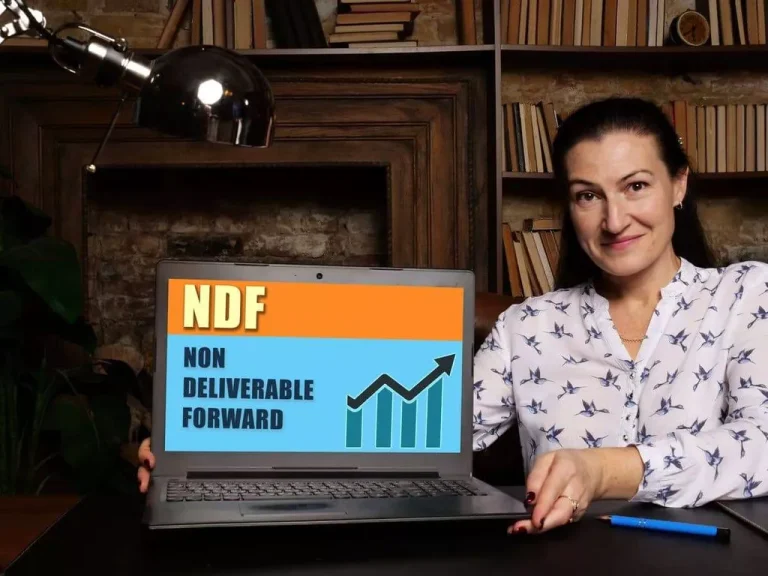Exchanges primarily earn income https://www.xcritical.in/ through transaction fees charged to merchants for each purchase or sale of assets. A cryptocurrency exchange, however, is a platform that allows users to purchase, sell, and trade cryptocurrencies immediately with one another. Exchanges sometimes have a wider range of trading choices and will provide advanced options similar to margin buying and selling and multiple order varieties. A cryptocurrency exchange is a digital marketplace the place traders can trade cryptocurrencies for different digital belongings or fiat currencies. They function similarly to conventional stock exchanges however throughout the cryptocurrency market.
Are There Any Further Fees Related To Using A Cryptocurrency Broker Or Exchange?
Navigating the world of financial markets can generally feel like learning a new language, full of complicated terms and ideas. Two phrases typically encountered, but not all the time fully understood, are “exchange” and “broker.” While these terms may seem interchangeable, they have elementary variations. Understanding the excellence Smart contract between an exchange and a broker is crucial for anyone concerned in financial markets, from beginners to skilled buyers.
What’s The Distinction Between Exchange And Broker?

They give devoted customer support and assist, a giant plus for newcomers to crypto buying and selling. Exchanges, then again, sometimes have a lower stage of security as they solely deal with users’ cryptocurrency assets. They additionally use SSL encryption to protect cryptocurrency exchange vs broker delicate info and comply with laws. However, exchanges are extra susceptible to hacking makes an attempt and safety breaches as they maintain a large amount of cryptocurrency belongings in a single place. To mitigate the risk, some exchanges also store assets in cold storage, however it’s value noting that not all exchanges do that. Security is a crucial factor to consider when choosing between a cryptocurrency broker and an trade.
Extra Companies From Crypto Brokers
While this varies amongst platforms, some exchanges provide restricted customer help. This can be a drawback for customers who need help with their trades or encounter points on the platform. Understanding these variations helps merchants choose the proper platform based on their buying and selling needs, threat tolerance, and the specific market they wish to engage in.

Meanwhile, exchanges expose traders to a broader range of market dynamics, requiring a higher threat appetite and self-assessment of potential risks. On the other hand, a dealer like Swyftx simplifies the buying and selling experience into one platform with support for Stop, Limit and Market orders. Pair this with the less chance of slippage and lower spreads, and it becomes simpler for buyers to know exactly how much they’re paying to buy/sell a digital currency. With higher liquidity comes lower spreads (the difference in buy/sell price) and fewer slippage (a worth difference between when an order is positioned and when it’s executed).
Brokers help you navigate, set prices and help commerce, whereas exchanges create a space for direct trading pegged on market costs. Brokers generally have a higher level of security as they deal with users’ personal info, corresponding to their name, tackle, and bank account details. They often use SSL (Secure Socket Layer) encryption to protect delicate information and also adjust to rules that defend the safety and privateness of users’ personal knowledge. Additionally, most brokers store users’ belongings in “cold storage,” which means they are saved offline in a secure location to guard them from hacking makes an attempt.
This can be significantly useful for beginners who might find navigating exchanges advanced and overwhelming. Moreover, brokers often present leverage buying and selling, permitting shoppers to commerce with borrowed funds, doubtlessly growing each earnings and dangers. Regulatory oversight often ensures that brokers preserve larger safety requirements, offering shoppers higher peace of thoughts. A broker could be the better choice should you worth personalised service and professional advice.
Brokers will likely maintain prices much like that of others in the same markets in order to maintain demand for his or her services. Exchanges – Crypto exchanges primarily make their revenue via transaction charges, which are charged every time a commerce is executed. These prices can differ primarily based on factors like the person’s buying and selling volume, the type of transaction, and the chosen payment methodology. Basically, an trade is an entity that acts as a trusted third celebration so one can exchange their assets with another person.
This is beneficial for merchants who determine to commerce an asset on quick discover or would like to maintain their property elsewhere till they are traded. With brokerages, liquidity is set by the brokerage itself, not different traders available in the market. As long as the brokerage is willing to accept an order the trader will be capable of execute their transaction. A brokerage sets their own value for property, however this worth is influenced by the value of the asset on different markets. A brokerage makes money by charging a spread, meaning the worth at which they’re prepared to promote is larger than the value at which they’re willing to buy.
- They typically give you analysis, advice, and the means to manage and diversify your portfolio.
- Both forms of brokers will buy and sell investments for their purchasers, however there are variations.
- Broker apps are often characterised by simple user interfaces and supply quick access to features such as market analyses, real-time charges and portfolio administration.
- Additionally, high-volume and high-frequency merchants might find a crypto exchange slightly less expensive due to fee discounts, though this will range considerably from platform to platform.
- Each perform of the trade – capital deposits, order books, order matching, and asset exchanges – are all decentralised.
However, these two fashions function fairly in another way behind the scenes, and this results in some important differences for what a dealer can accomplish in either kind of market. Firstly, exchanges typically provide a higher variety of cryptocurrencies and buying and selling pairs, permitting for extra various funding opportunities. Price Stability – Brokers, particularly crypto brokers, can offer price stability by setting their prices for cryptocurrencies. This eliminates the need for a purchaser and a seller to agree on a value and may shield users from short-term volatility. The differences between exchanges and brokers make them appropriate for various buying and selling strategies. To assist you to determine which is greatest on your wants, let’s further discover the pros and cons of using an trade or dealer platform for buying and selling cryptocurrencies.
Exchanges with a lot of market depth facilitate efficient buying and selling and higher value finding. A complete order guide with many orders at every worth degree shows a really liquid market. Exchanges, on the contrary, typically observe a maker-taker charge mannequin, the place the charges are dictated by whether a dealer is contributing or withdrawing market liquidity.

However, exchanges will provide you with possession of an asset as soon as a commerce happens whereas brokerages may take longer for every little thing to settle. A brokerage can additionally be prone to cost a higher unfold or charge than an change which means the end worth could additionally be much less favorable. Ultimately, the choice between a dealer and an trade depends on the trader’s experience degree, trading preferences, and particular needs in the crypto market. The measurement of your investment and the way incessantly you trade also can affect your decision. If you are a high-volume dealer, the lower transaction prices on exchanges can prevent significant money over time. Like any financial platform, brokers and exchanges have benefits and downsides.
This is right for experienced merchants who’re in search of more flexibility and control over their trades. However, the interface may be more advanced and never as user-friendly, which can be overwhelming for model spanking new buyers. Knowing the differences between brokers and exchanges is crucial for navigating the tricky world of crypto buying and selling. Brokers – Brokers normally cost a commission or spread-based charge for their companies. The commission fee is a hard and fast price per transaction, while spread-based charges contain charging the distinction between an asset’s shopping for and selling price. For crypto brokers, the payment may also be included in the premium they charge for the cryptocurrencies.
Because securities exchanges solely accept orders fromindividuals or firms who are members of that change, particular person merchants andinvestors want the services of exchange members. Brokers present that serviceand are compensated in varied methods, either through commissions, charges orthrough being paid by the trade itself. A distinctive benefit of a broker like Swyftx is the ability to commerce any of the listed crypto property (320+) against any of the listed base pairs (USD + BTC) without struggling liquidity losses. This isn’t always feasible on an trade as a result of each pair (e.g. BTC/NEO or USD/NEO) has its personal order guide, which implies much less and less liquidity for each asset for each pair that’s introduced.
Cryptocurrency exchanges play a vital position in sustaining market liquidity and effectivity. However, they differ in that they function 24/7 and usually expertise a better diploma of value volatility. Even with brokers tacking on a markup to the market price, this offers specific advantages to traders. Regulations play a crucial function within the cryptocurrency market, and it’s necessary to consider the rules that apply to a dealer or trade when making a call. Whether you select to use a broker or exchange will be determined by a range of things including privacy ranges, regulatory levels, and charges. Brokers are a conduit to the markets, and so they can use a quantity of kinds of buying and selling venues to execute and fill a trade.
